This past year we’ve all been confronted with the fragility of life. Many loved ones have unexpectedly passed away. In trying to make sense of it all, we’ve looked to find meaning in these seemingly senseless deaths and have come to appreciate life more. Rituals are one way to honor those who are no longer with us; learning from them and transforming our lives is another that can bring purpose and healing to our lives.
The blue skies and beautifully shaped ocean waves – the kind surfers love – made for a perfect last day of Youth Mentoring Connection’s (YMC) surfing program. A special energy filled the air as people from their community gathered for their annual “Memorial Paddle Out,” a sacred surf ritual to remember those who have passed.
An altar created with sand, seashells, and sunflowers stood in the center of the space. I was struck by its simple beauty as I watched youth, mentors and friends carefully place a photo or a rock with a loved ones’ name on the altar. As I lay down my rocks and photos, I could feel the spirit and soul of each person. It’s as if they were smiling at us knowing they were being held in this sacred space to be honored and celebrated for their life.
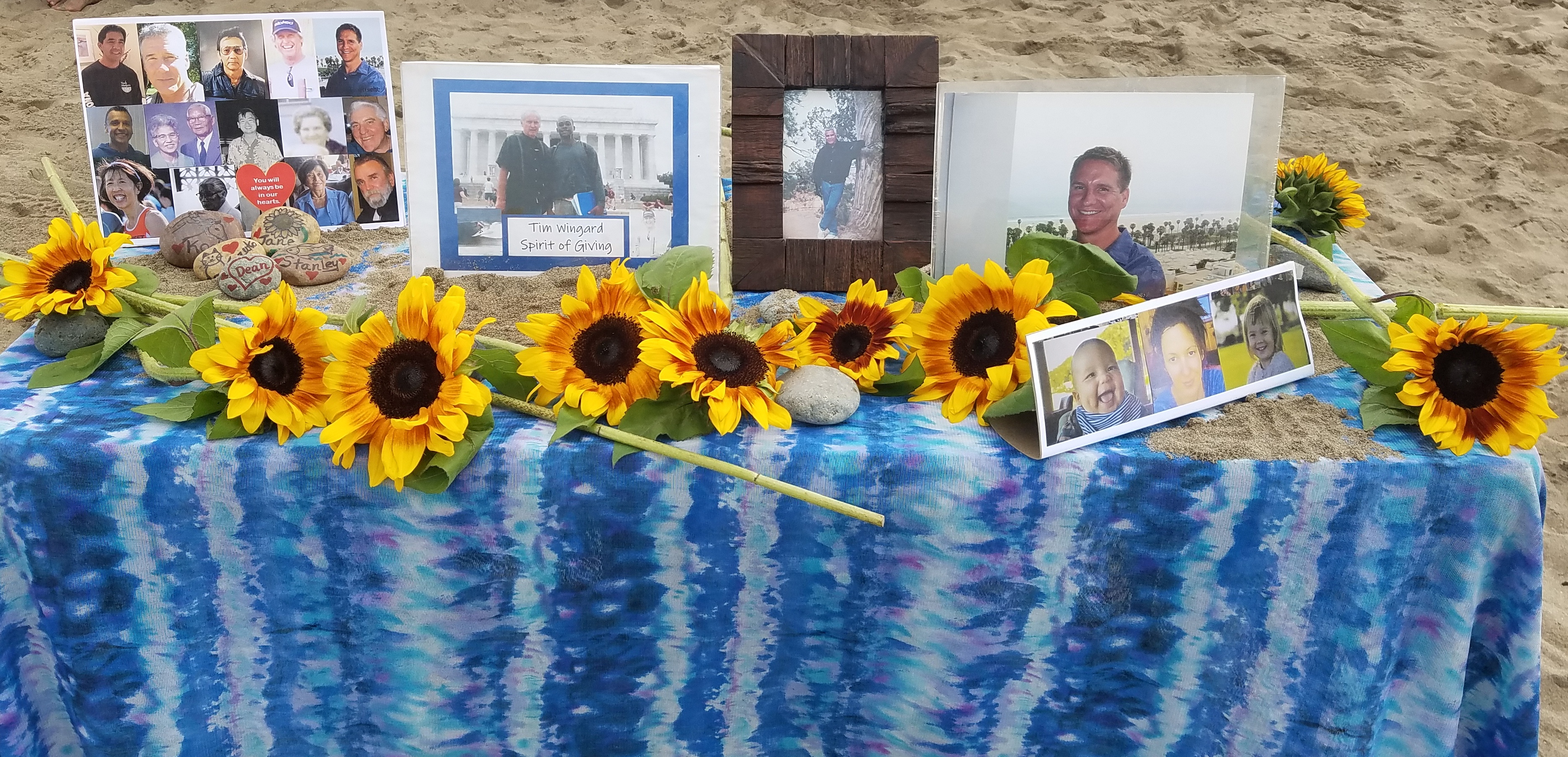
Forming a circle, Tony, CEO of YMC described this sacred surf ritual. “We paddle out for those who have passed and for our ancestors before them.” Explaining the soulful way they would honor our ancestors with the healing energy of the ocean, opened our spirits and souls to best honor our ancestors’ lives. Soon it was time for surfers to gather rocks and flowers before they started to paddle out to a quiet spot far from the ocean’s shore.

Those of us who stayed on the beach supported this sacred surf ritual by holding the space with rhythmic sound. We hit drums and played other percussion instruments which reverberated out to the surfers now forming a circle.
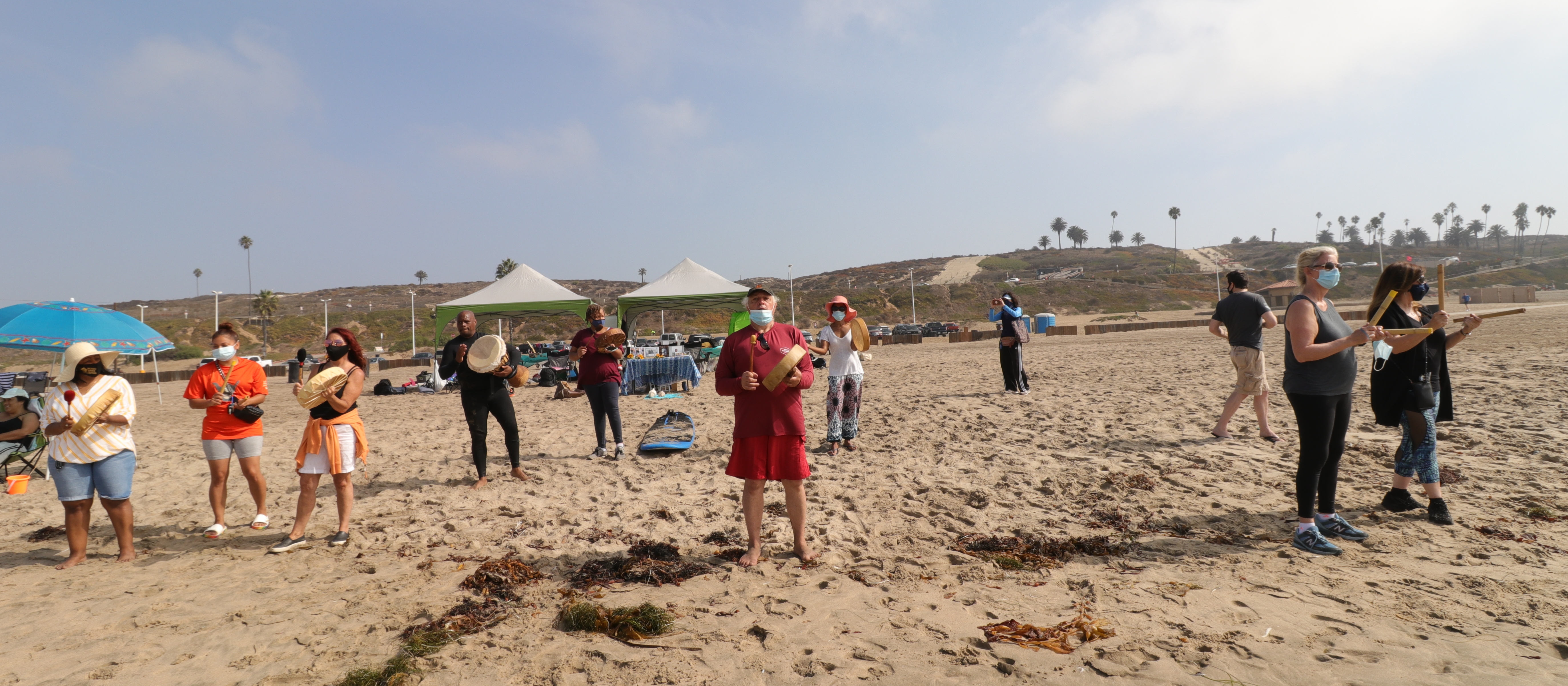
Holding hands, Tony led them in prayer and song. They memorialized loved ones by calling out their names or sharing a remembrance of their life as they threw flowers and dropped rocks into the ocean. Surrounded in the beauty of community and flowers floating in the ocean, they promised our ancestors to live bigger and better lives in their memory.

From the shore, we could see the ritual ending as the surfers splashed water, a sign of celebrating our ancestors’ lives.

As the sound of drums beating filled the air, the joy of celebration was felt as surfers rode the waves back to shore.
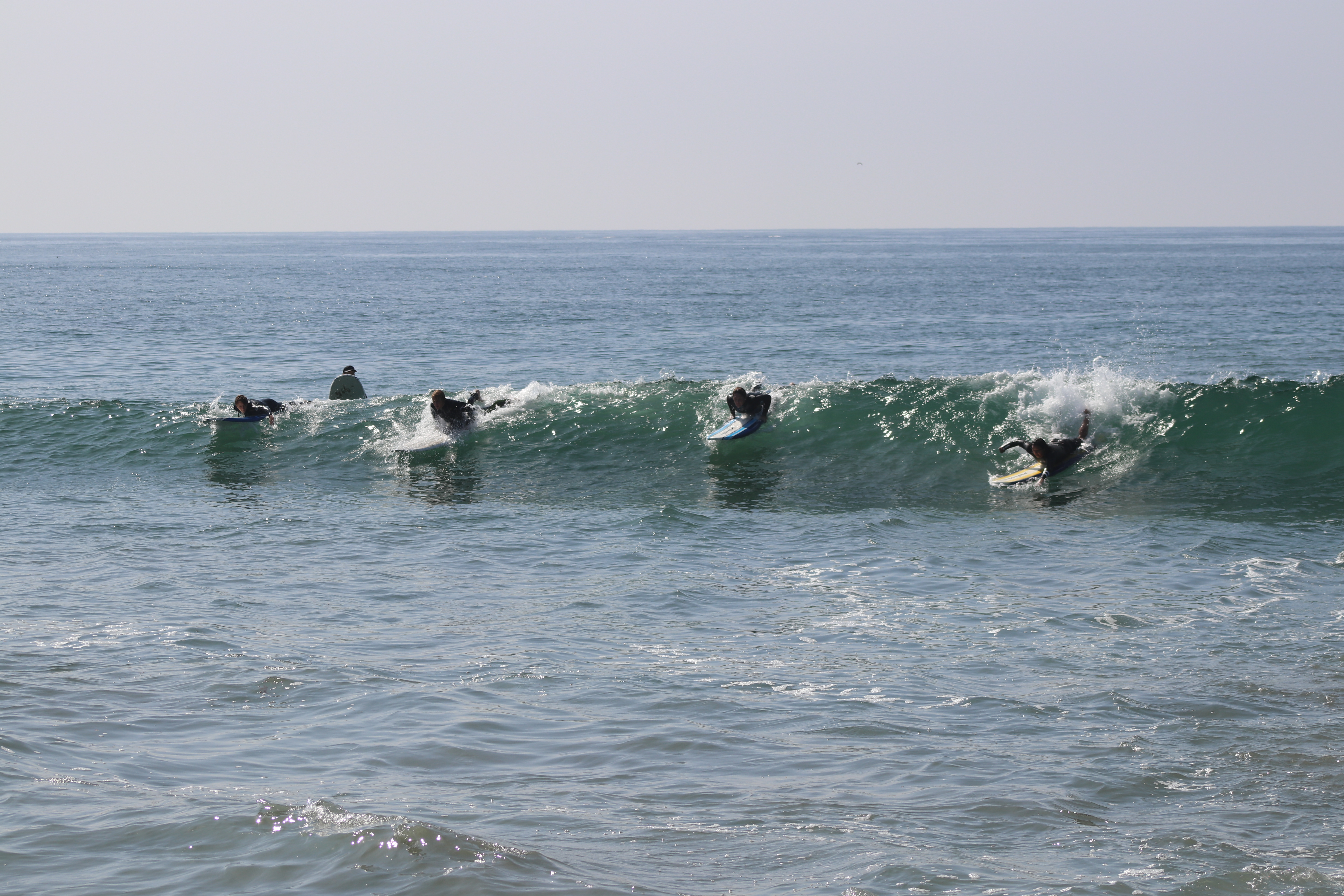
Standing on the beach, I soaked in this profound ritual. To participate in such an experience can awaken new perspectives on the continuum of life, death and our relationship with others and the world. It struck me that for so many, when someone dies, something awakens within us. Their goodness rises to the top and we finally see the whole of who they are with loving kindness. We’re reminded of the good they brought into our lives and others. Our compassionate hearts open up and we’re often able to let go of our grudges, slights and soften negative judgments with understanding and forgiveness.
What if we did this when they were alive? What if we saw their goodness, gifts, blind spots, weaknesses and accepted the whole of who they are? What if each day, we let go of the slights, grudges, right/wrong judgments and instead find small ways to see their gifts, even in what we might consider to be bad behavior? Why wait until they’re gone to accept who they are; to change our reactions to how they trigger us; to hold them in our hearts?
This resonated with me. It took my younger sister, Jane’s unexpected death to wake me up and see some of the unsupportive patterns I got stuck in, in a profound way.
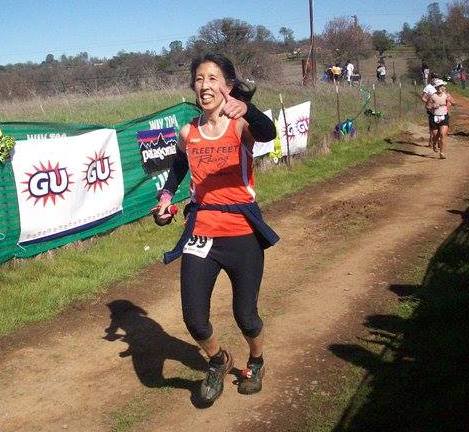
I love Jane, but as siblings, we had our strong differences. It was a Saturday when I got an urgent call from one of my other sisters to fly home to Sacramento since, living in L.A. I was the closest. Jane (a decorated marathon runner) had collapsed while running a trail and was in a comma. It was during those 17 days as my mother and I sat next to her, I saw more clearly the true goodness of my sister and the message she’d been trying to convey.
I learned how deeply she impacted others as love poured out, especially from her running community. Every day people came until the nurse had to limit the number in her room. Yet friends kept coming, waiting patiently outside her door to give their love and support. When she died, her friends raised thousands of dollars to put up a stone bench engraved with her name. Placed at the spot where she collapsed on the American River Parkway, they celebrated her life with her favorite sunflowers in a beautiful ceremony to remember and honor her life.

Through stories, I learned about her loyalty to others and to my mother. When my father died, she included my mother in friends’ gatherings, so everyone knew mom. I learned how she gave back in unexpected ways; transformed people’s lives through her passion for helping others and got people involved in causes she volunteered for. I discovered through my cousins that Jane was the one who stayed in touch with them.
I could feel the profound message she was sending me. She’d always encouraged me to spend more time outside of work, especially with family. Yet my passion for my life’s calling (to help leaders and their companies) often kept me from traveling home to visit or even having long conversations with family. Working hard was a value passed on by my parents, especially my father who was admired by many for the difference he made as a doctor of orthodontics. I saw the endless hours he worked to support his family and the passion he had for changing people’s lives. However, he got sick before he was able to keep his promise to travel with my mother. And the important book he was writing about his innovative methods in orthodontics was never finished.
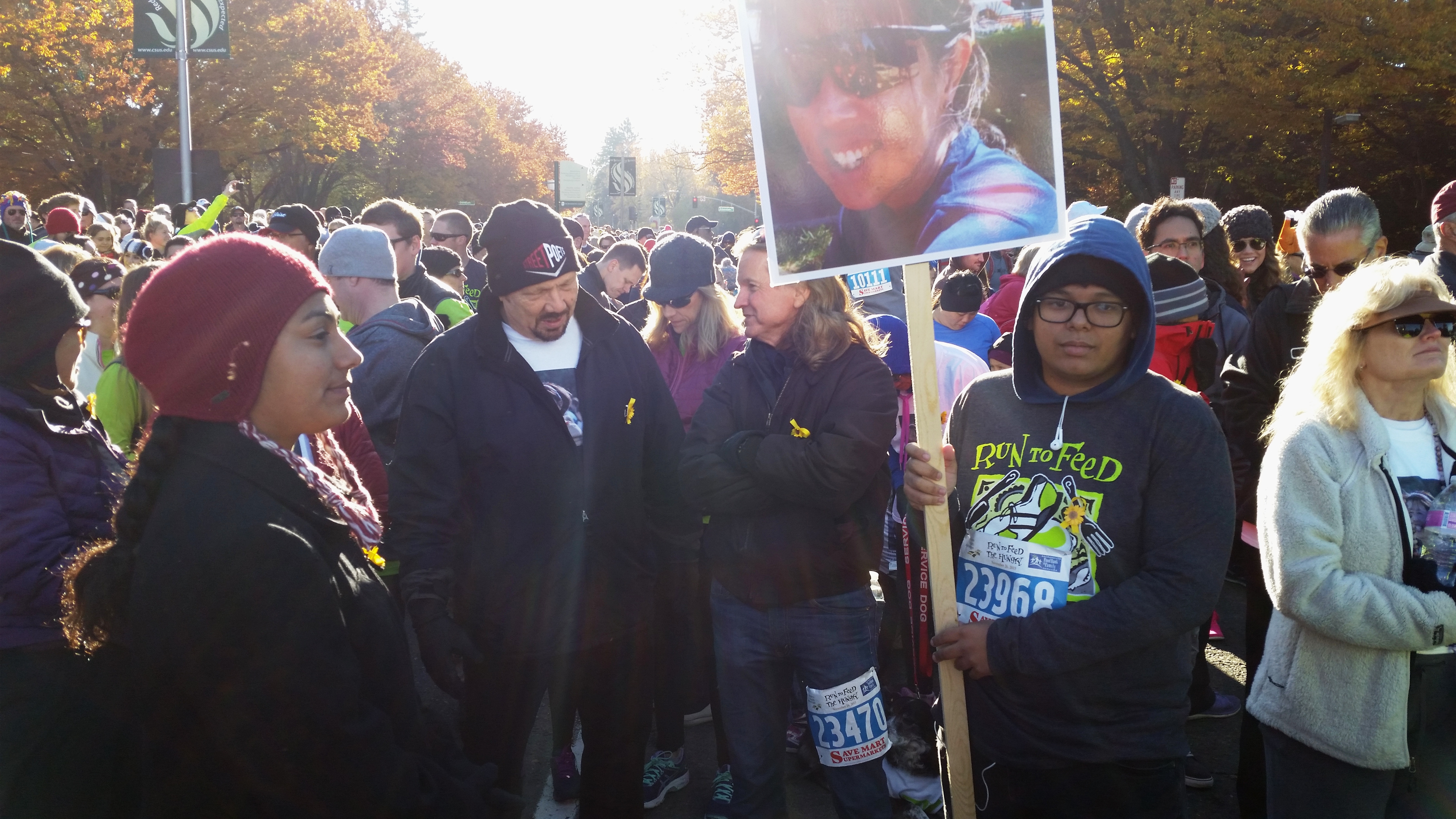
On the Thanksgiving after Jane’s passing, her running community came together to run for her. Surrounded in such love for my sister, shifted something in me. I wanted to honor her by living the message she’d left me. It’s interesting, the values and patterns of our ancestors are passed on from generation to generation – good and bad. Generations can pass on the goodness of their families or live with the same blinders of the past. Until someone does something different, the same patterns continue to exist. This is true with the racial prejudices we’ve seen for centuries.
My family’s value of working hard has served me well; yet, anything can become our weakness when it’s the only filter through which we see the world. Jane opened my eyes to see how valuable it was to find time outside of work. Since her passing, my husband and I have taken more time off traveling, especially with family. We fulfilled my dad’s promise and took my mother for the first time to our ancestors’ homeland in Japan. I published my first book in honor of Jane and my dad and his dream to publish his never-completed book. Today, I have weekly conversations with family and feel a connection that’s become quite special. And bringing more joy into my life, another thing Jane encouraged me to do, goes beyond my passion for my work and transforming lives, to the simplest things I engage in every day.
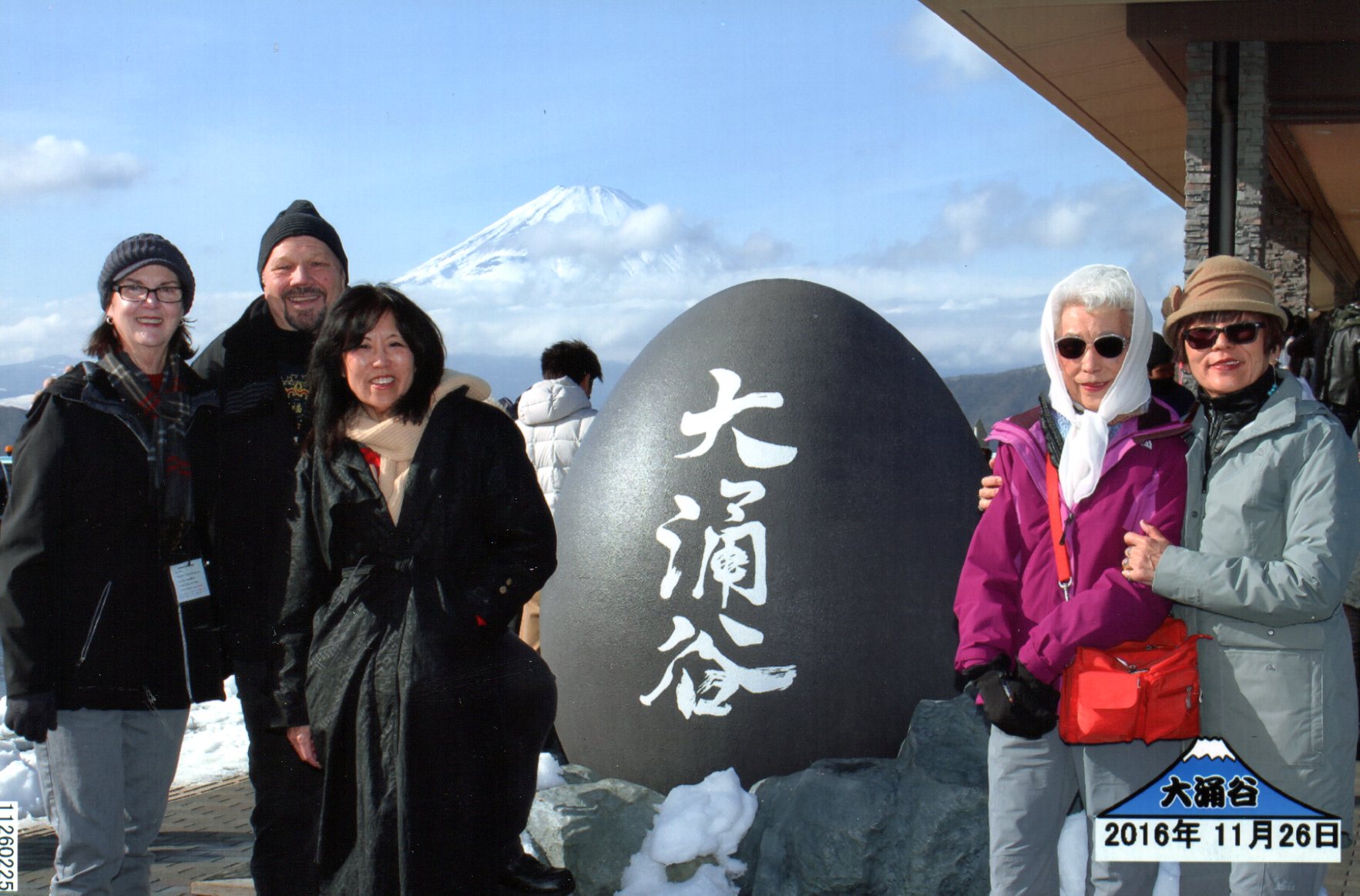
We can learn from our ancestors, their gifts and goodness to their fears and blind spots. We can break the unsupportive patterns they passed on and replace them with ones that support and affirm. We can take their goodness and carry that forward, using our gifts to make it better. In the process, we can learn the lessons they couldn’t learn in their lifetime and break the cycle that keeps upcoming generations stuck in the trepidations and inequities of the past. Then remembering our ancestors will not only be a celebration of their life but how they transformed ours.
Sawubona!
* Sawubona: A Zulu greeting meaning “I see you.”


